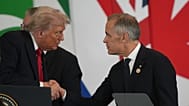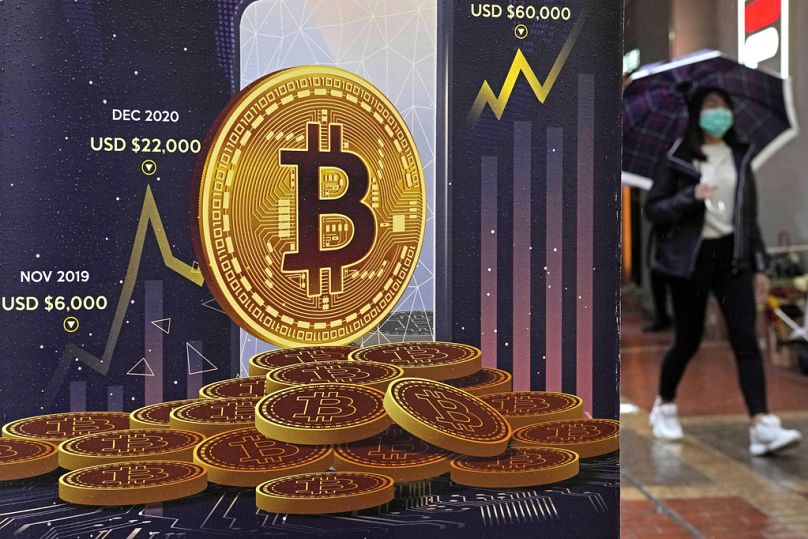We can protect Bitcoin’s long-term value by diversifying how and where we invest in it and keeping a close eye on the custody practices and decentralisation (or lack thereof) of these financial products, Marc Taverner writes.
The recent surge in the price of Bitcoin (BTC) has the market feeling more buoyant and positive than it has in some time.
Traders and investors across Europe, the US and the UAE seem optimistic about the approval of exchange-traded funds, or ETFs, which could further propel its value — exciting even for those outside of the United States.
However, while this development may be seen as positive for price growth, it raises concerns about the decentralisation of the market.
And as the ETFs have been approved, soon we will know if they can attract more institutional investors, thus boosting liquidity and market stability. However, we must question whether this influx of external influence comes at a cost.
You win some, you lose some?
Not everyone shared the optimism regarding the US Securities and Exchange Commission's (SEC's) approval. Prominent Bitcoin critic and gold advocate Peter Schiff has voiced concerns.
He cautioned that ETF approval could have a catastrophic impact on the price of Bitcoin, especially if the anticipated institutional demand fails to materialise.
This and some other perspectives challenged the general optimism, and they even created a temporary surge in Bitcoin’s price over the last weeks. But the answer is — no one has the answer to what will come next.
The BTC ETFs were approved by the SEC last week, but the question of the legitimacy and positive impact of external influence on crypto is still in the air.
Among the eight ETFs that were awaiting approval, only one of them utilises a decentralised custody solution (Fidelity). The remaining seven, including Coinbase, rely on centralised custody solutions.
This raises a crucial concern: are we overlooking the fact that ETFs, while supporting price growth, could undermine the core of Bitcoin’s decentralisation?
Command and control model at odds with Bitcoin's vision
While ETFs may boost Bitcoin's price and bring more liquidity into the market, they could also promote the centralisation of accessing it.
For instance, investing in a Blackrock ETF imposes certain limitations on the investor. These limitations include individuals and investors being bound to a centralised custody solution that cannot be easily escaped.
It consolidates centralised control over a market and asset that was meant to liberate them.
This shift towards centralisation resonates with a model of control and command that seems at odds with Bitcoin's original vision of empowering individuals through decentralisation.
Bitcoin was conceived as a tool to redistribute power from centralised authorities to individuals, but the advent of ETFs risks subverting this ideal. Investors need to consider the direction this journey is taking them.
Would it not be more prudent to invest directly in Bitcoin, where they retain full control over their assets and are not subject to oversight by the SEC?
Keeping a close eye on custody practices key
Given the potential risks posed by investing in a Blackrock ETF, it is worthwhile to consider alternative options that prioritise individual control and minimise regulatory oversight.
By supporting a system wherein investors have more autonomy to exit and operate outside the purview of regulatory bodies like the SEC, the market may be able to preserve its decentralisation vision while benefiting from the advantages offered by ETFs.
Europe has several of these products, which seem to get overlooked in the ETF hype cycle.
Even after the ETFs are approved, investors must consider not just the financial implications but also the long-term impact on their investment from their investment.
It presents a paradox — while they may propel Bitcoin into the financial mainstream, they could also compromise the very decentralisation that makes Bitcoin such a valuable asset.
Ultimately, the decision regarding ETFs was in the hands of the SEC, and the decision was made. The market will witness the outcome in due course.
Still, we can protect Bitcoin’s long-term value by diversifying how and where we invest in it and keeping a close eye on the custody practices and decentralisation (or lack thereof) of these financial products.
Marc Taverner is the CEO and co-founder of XEROF, a Swiss financial services provider specialising in cryptoassets.
At Euronews, we believe all views matter. Contact us at view@euronews.com to send pitches or submissions and be part of the conversation.




















